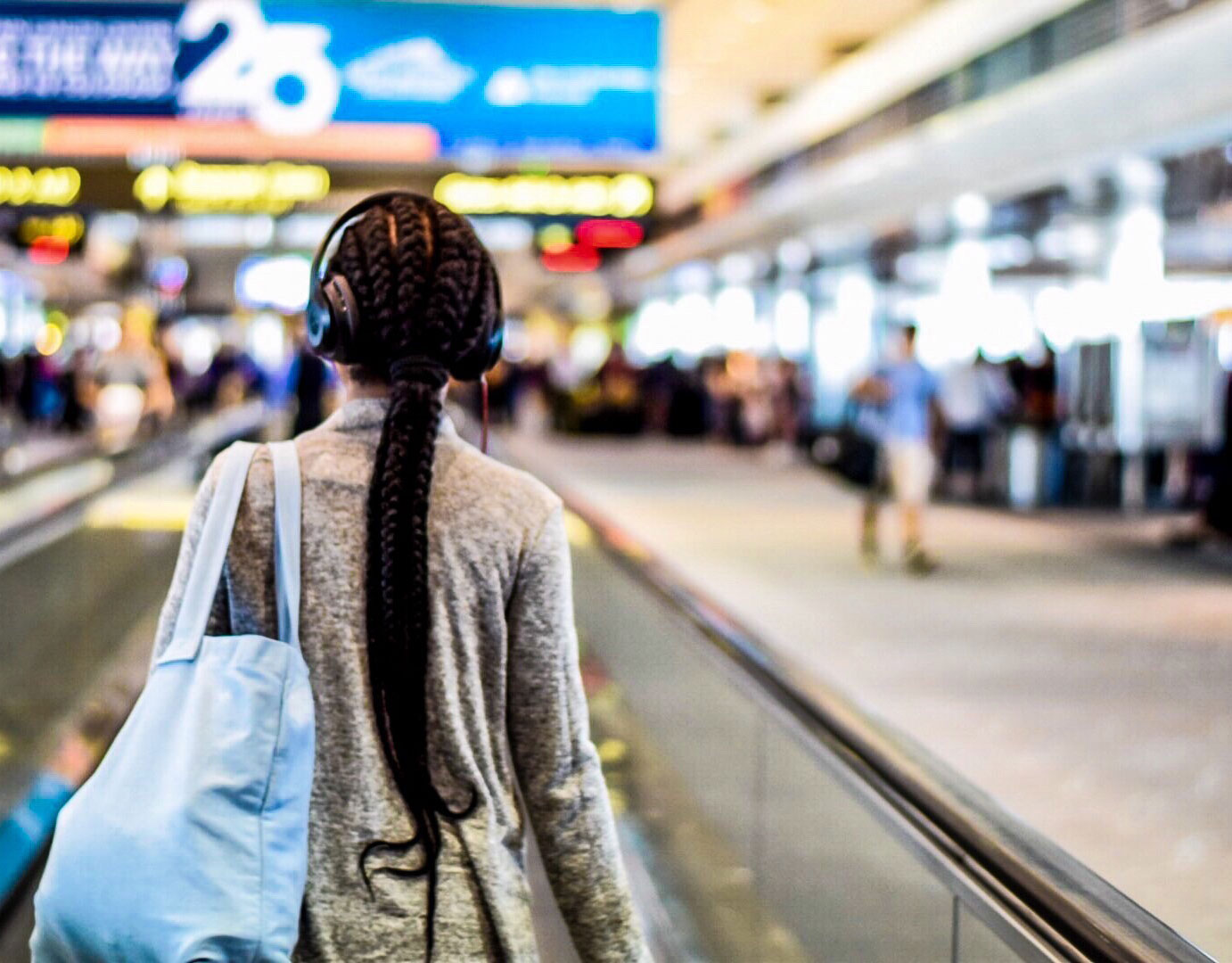With summer comes family gatherings, holiday activities and travel plans. However, for an increasing number of people using CBD as a way to relieve a myriad health and wellness issues, one very important question emerges during this time: Can I travel with my CBD?
CBD and Travel
For many people, CBD is not only something that provides relief in their everyday life, for many it is an essential part of their travel plans—either as an aid to help relieve anxiety during flying, or as a way to reduce nausea during bouts of motion sickness.
Because of unclear laws and regulations, discrepancies between state and federal laws, combined with the continuous change in legislation and regulations surrounding cannabis and cannabis-derived products, traveling with CBD is not as straightforward as you might think.
With the most recent update in the form of the 2018 Farm Bill, the sale and advertising of hemp-derived CBD products are now legal on a federal level. And by default it’s now also possible to carry these across state lines.
To reflect this change in legislation, the Transport Security Agency (TSA) updated its policies regarding traveling (more specifically flying) with CBD products. Airline passengers are now allowed to possess and transport CBD products as long as they are in accordance with federal law. This means that your CBD must contain less than 0.3 percent tetrahydrocannabinol (THC) and must be approved by the Federal Drug Administration (FDA).
Sounds simple enough, right?
Unfortunately not. Because the TSA adheres to federal law it is still illegal to travel with CBD products that are derived from cannabis sources other than hemp. That means that even if your CBD oil contains legal amounts of THC, it might still be illegal to travel with.
However, by following the tips below, we can help you navigate the ins and outs of safely flying and driving with CBD.
Flying with CBD
Although concessions have been made for people traveling with hemp-derived CBD, the decision whether to allow an item onboard a plane is ultimately the decision of the TSA officers.
The TSA’s main concern is maintaining the safety and security of everyone on board a flight. So, when an agent comes across a suspicious-looking item during a routine search, he or she will confiscate it. And that might just include your bottle of CBD.
Similarly, if an agent suspects that the CBD is derived from sources other than hemp or contains more than the allowed amount of THC, the agent must report the situation to a law enforcement officer. At the very least, this scenario can lead to a certain amount of inconvenience.
Tips for Flying with CBD
- Only take a product with you that is derived from hemp and contains less than 0.3 percent THC. To further reduce the risk of running into trouble, carry a product with 0 percent THC.
- It’s also important to bring any and all documentation associated with your CBD product with you. This includes lab reports showing THC content, the origin of the CBD (hemp-derived) and even sales receipts showing where you bought it.
- Another option is that, if your CBD was prescribed by your doctor (which, admittedly, is a rare scenario), carry your prescription with you or ask your physician for a note that you can present to authorities.
- Keep your CBD in your carry-on luggage. That way you are on hand with your documentation and doctor’s note to pass to the TSA agent in the event of any questions.
- As with all other liquids, there is a limit to the amount of CBD you can carry onboard with you. Make sure that your CBD oil is in a container that is 3.4 oz or smaller.
- It’s not a good idea to flash your CBD around, and it might be a good idea to either use a discreet product such as CBD gummies or a CBD patch. Alternatively, and if possible, take a serving before the flight. Similarly, although the TSA allows vaping devices to be brought onto the plane in carry-on luggage, it is prohibited to use them during the flight.
Flying Internationally
When visiting another country, it is vitally important to research the laws and regulations surrounding CBD for the country of origin. Some countries such as Sweden are considered gray zones—even for hemp-derived CBD, but in Denmark you need a doctor’s prescription to legally buy and possess CBD.
Driving With CBD
Despite the continual relaxing of state and federal laws around hemp and hemp-derived CBD, it can still get somewhat complicated.
In some states, drivers are allowed to travel with a product made from either hemp- or cannabis-derived CBD, yet in others it’s imperative to stick to hemp-derived CBD products only. Yet in others, you are allowed to consume CBD within the state, but not bring it into the state. That is why it’s important to research the laws regarding CBD and cannabis for both the states you are traveling from and to, as well as any states you will be traveling through.
For example, within California, CBD derived from industrial hemp falls under the state’s cannabis laws, and as such, is not considered an approved food additive. This means that technically, it’s considered illegal to take a bottle of CBD from Florida (where it is considered and marketed a legal food supplement) into California.
Tips for Driving with CBD
- Although driving with CBD is a lot less complicated than flying, it’s still important to research the state laws. As the example above shows, it can become complicated when traveling between or through states with different cannabis and hemp laws.
- Ensure that your product is secure and well-packed in order to avoid leaking or breakage. No one wants CBD oil all over their luggage and clothes.
- Keep the container cool, dry, dark and out of direct sunlight. This will help to maintain the integrity, potency and quality of the product.
For the most part, traveling with hemp-derived CBD shouldn’t be a problem. However, whether traveling by road, rail or air, take the time to research and understand the laws and regulations around CBD products for both departure and destination locations. It’s always better to be safe than sorry.




